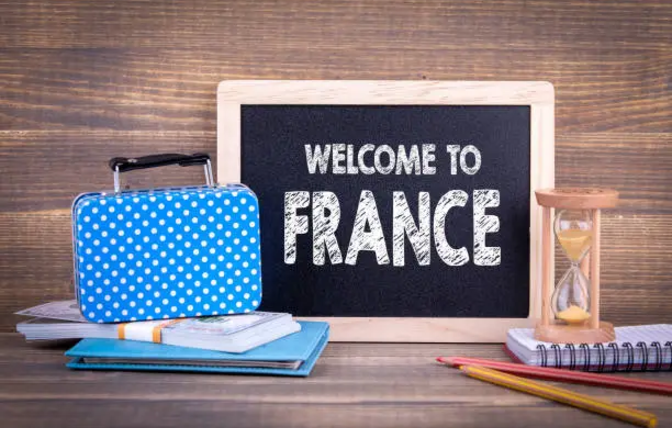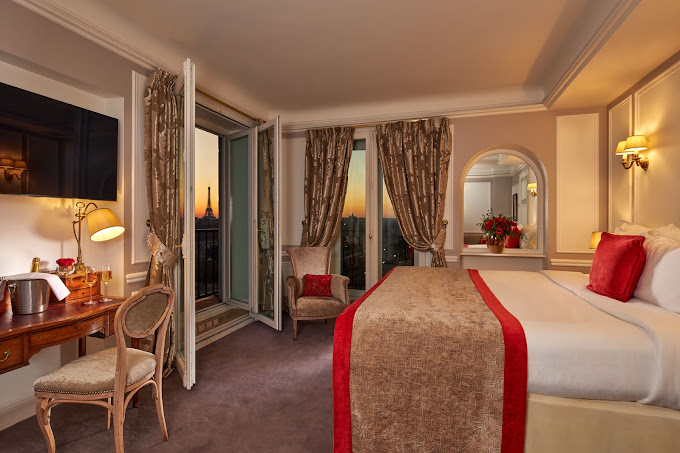
First-time travel to France is a dream for most. From the dreamy boulevards of Paris to Provence villages, the French Riviera glamour, and culture-intensive cities such as Strasbourg and Lyon, France has an eternal combination of atmosphere, history, and elegance. This is a guide offering practical tips for first-time travelers to France, ensuring the trip is easy, fun, and interesting.
Get Familiar with the French Culture Before You Embark
Master French Basic Phrases
Despite most French people speaking English, particularly in cities, simple French greetings like Bonjour (Hello), Merci (Thank you), and Parlez-vous anglais? (Do you speak English?) will go a long way. The French will appreciate politeness and effort, and a greeting will work miracles.
Respect French Etiquette
French etiquette is formal. Always greet shopkeepers with Bonjour Madame/Monsieur when entering a store. When dining, avoid placing your elbows on the table and keep both hands visible.Tipping is welcome but not required since service charges usually accompany bills.
Plan Your Itinerary Smartly
Don’t Try to See It All in One Trip
France is big and varied. Don't dash across a dozen cities to scratch boxes. Concentrate on a few important places—e.g., Paris, Bordeaux, Provence, or Normandy—and dive in. Depth, not breadth, produces a satisfying French travel experience.
Book in Advance
Popular tourist sites such as the Eiffel Tower, the Louvre Museum, and Palace of Versailles typically need to be reserved in advance. Purchase your tickets online ahead of time to save queuing and get the best time slots.
Packing Essentials for France
Dress Like a Local
French individuals have a sense of style. Wear smart-casual. Avoid dressing down, e.g., flip-flops, gym clothes, shorts in urban areas. Pack good shoes, particularly for cobblestone streets.
Pack a Universal Adapter
France requires Type C and E plugs with a voltage of 230V. A universal adapter will keep your devices charged.
Transportation Tips in France
Utilize Public Transport in Cities
Metro system in cities such as Paris is comfortable, effective, and cheap. Buy Paris Visite Pass for the unlimited use of metro and buses. SNCF trains are good and dependable for local transport, utilize them for your local transportation.Book TGV high-speed rail tickets in advance to obtain cheaper tickets.
Driving in the Countryside
Car rental is the easiest option if you are going to the French countryside, wine region, or Loire Valley. Keep in mind that the majority of rental cars are manual, so inform them if you require an automatic. French road signs are also in French, so familiarize yourself with terms such as Sortie (Exit) and Ralentir (Slow down).
Eating in France: What to Know
Meal Times Matter
French meals times are strict. Lunch typically ranges from 12:00 to 2:00 PM and dinner from 7:30 to 9:30 PM. Anytime outside these hours, most restaurants will be closed. For a snack or light meal, visit cafés or boulangeries.
Sample the Local Cuisine
Every part of France has its own specialties in cuisine. In Burgundy, have coq au vin; in Provence, have ratatouille; in Alsace, have choucroute garnie. Cheese, wine, and also pastries such as croissants and macarons must not be omitted.
Money and Payments
Cards Are Very Accepted, but Cash Is Convenient
Credit and debit cards are accepted nearly everywhere, though it's advisable to have some euros handy for small purchases, markets, and in the countryside. Don't forget to notify your bank in advance to avoid card blocks when used abroad.
VAT Refund for Shoppers
If you buy more than €100 worth of merchandise in one shop, you can claim a VAT refund. Request a tax-free form (Détaxe) and use it at the airport when leaving.
Safety and Health Tips
Watch Out for Pickpockets
Areas popular with tourists, particularly Paris, are where pickpockets operate. Carry valuables close to your body, don't leave valuables on display, and think money belts or anti-theft backpacks.
Healthcare and Travel Insurance
The EHIC card can be utilized by the citizens of the EU to be eligible for medical treatment in France. Non-European tourists must possess an extensive coverage of travel insurance including health, cancellations, and theft.
Internet and Communication Connectivity
SIM Cards and Wi-Fi
Purchase a local SIM card from operators such as Orange, SFR, or Bouygues Telecom for cheap calls and data. Free Wi-Fi is widespread in hotels and cafes but always connect through a VPN when using your personal accounts on public networks.
Cultural Must-Sees Not to Miss
Discovery Beyond Paris
While Paris is mandatory, do not miss other pearls:
Lyon: France's gastronomic capital.
Nice: Gateway to the French Riviera.
Strasbourg: Charming French-German mix.
See Museums and Historic Sites
There are more than 40,000 castles and historic sites in France. Notable mentions are Château de Chambord, Pont du Gard, Carcassonne, and Notre-Dame de Paris (under restoration but open).
Seasonal Travel Information
Spring (March–May)
Good weather and flowering gardens. Best time to explore cities and outdoor cafes.
Summer (June–August)
Peak tourist season. Expect crowds and higher prices. Ideal time for beach holidays and festivals like Bastille Day (July 14).
Autumn (September–November)
Comfortable weather and fewer crowds. Best time for wine tours and seeing autumn colors.
Winter (December–February)
Ideal for Christmas markets, skiing in the Alps, and city museum-hopping.
Bonus Tips for First-Time Visitors
Use Google Maps offline: Download city maps ahead of time.
Mind the strikes: Transport strikes happen—always check news before traveling.
Respect personal space and tone: French conversations are formal.
Don't expect ice in drinks: It's not a French norm, particularly for water.
Conclusion: Make Your French Trip Unforgettable
With planning, sensitivity to culture, and an open but organized itinerary, your maiden trip to France can be an excellent experience filled with culture, food, and memories. Adhere to these tips on traveling France to travel France like a pro and enjoy the country's unique flavor.











